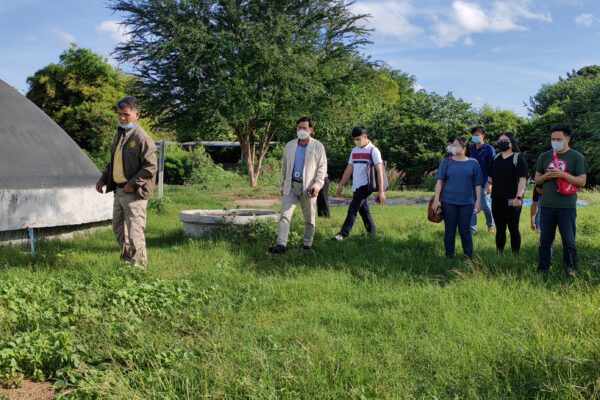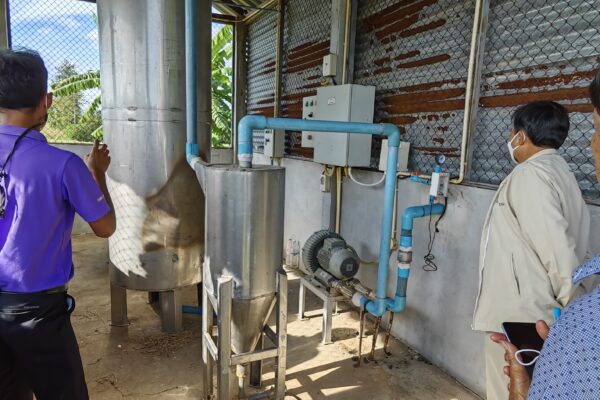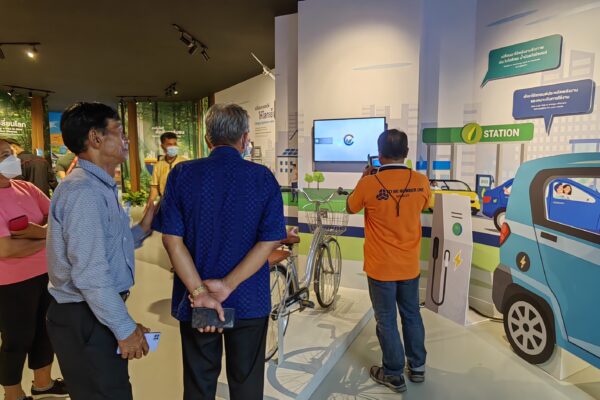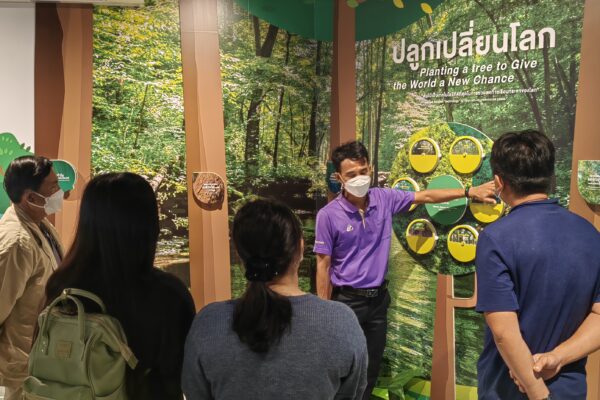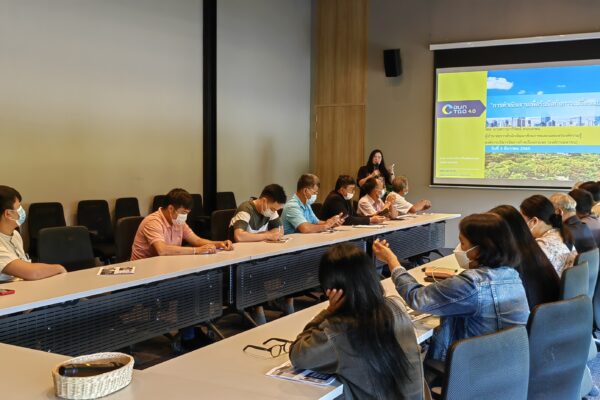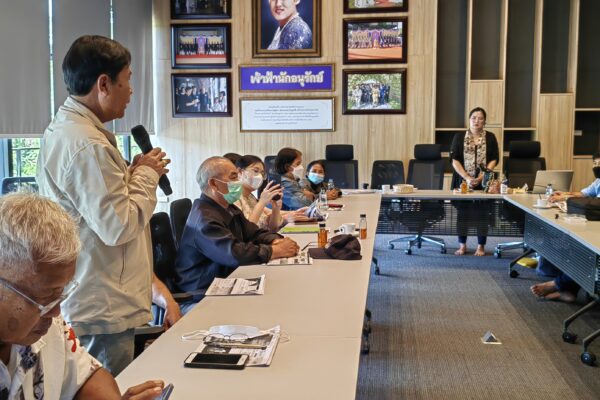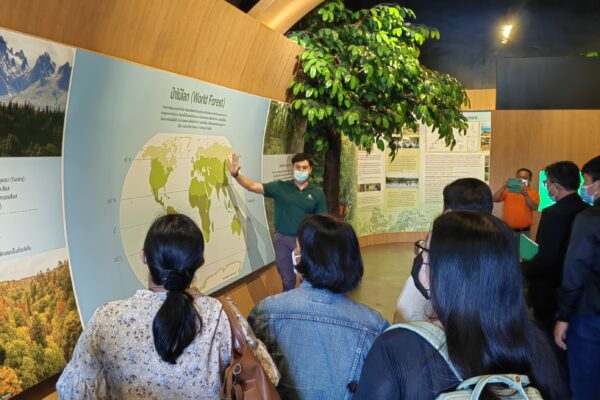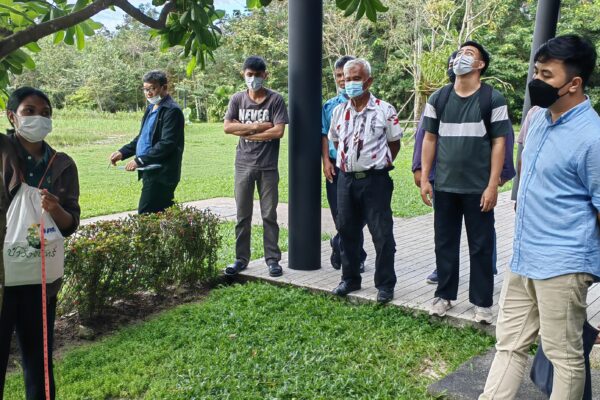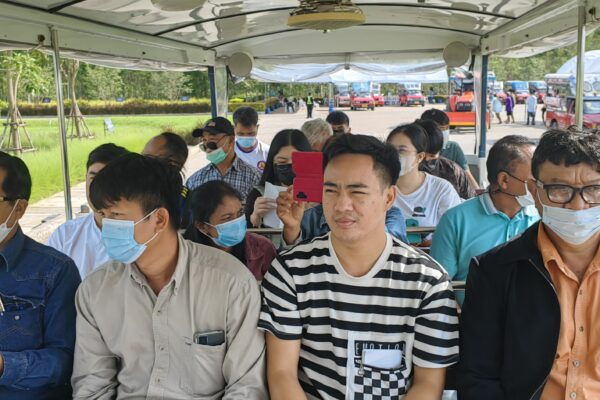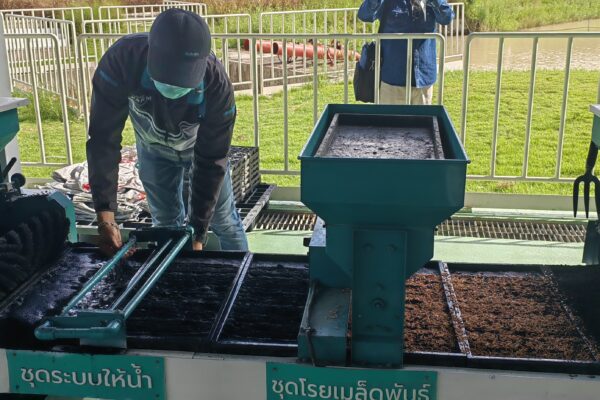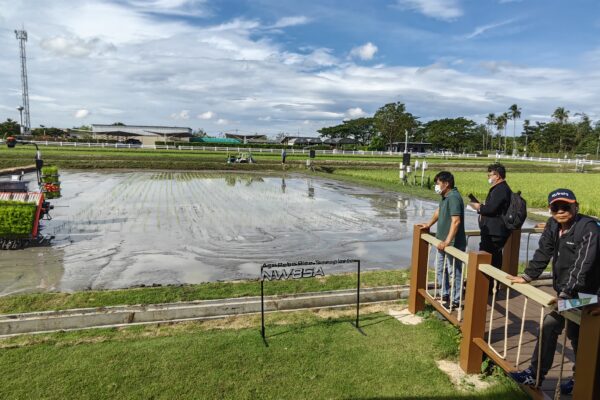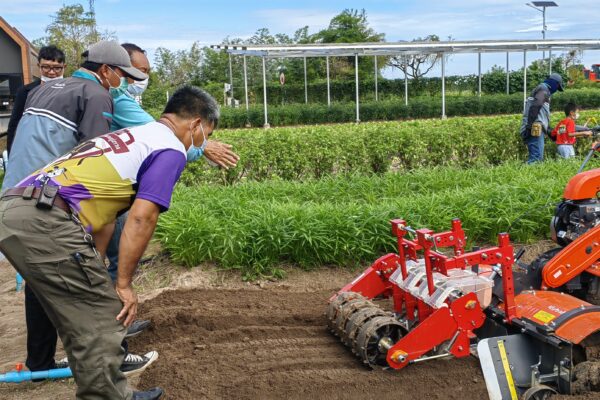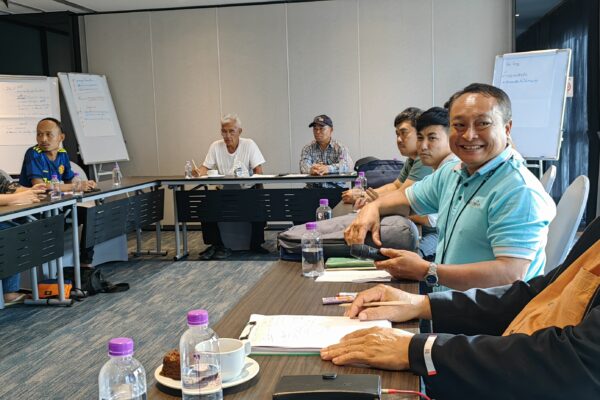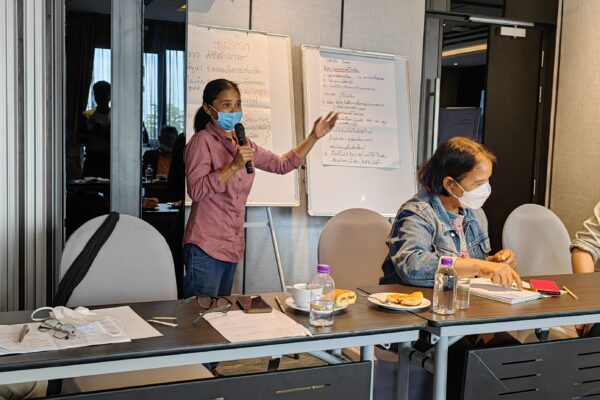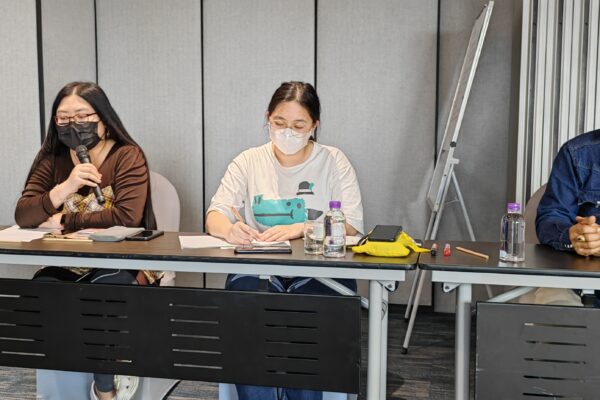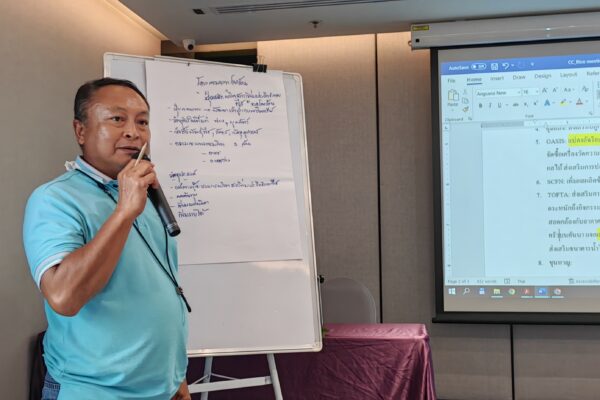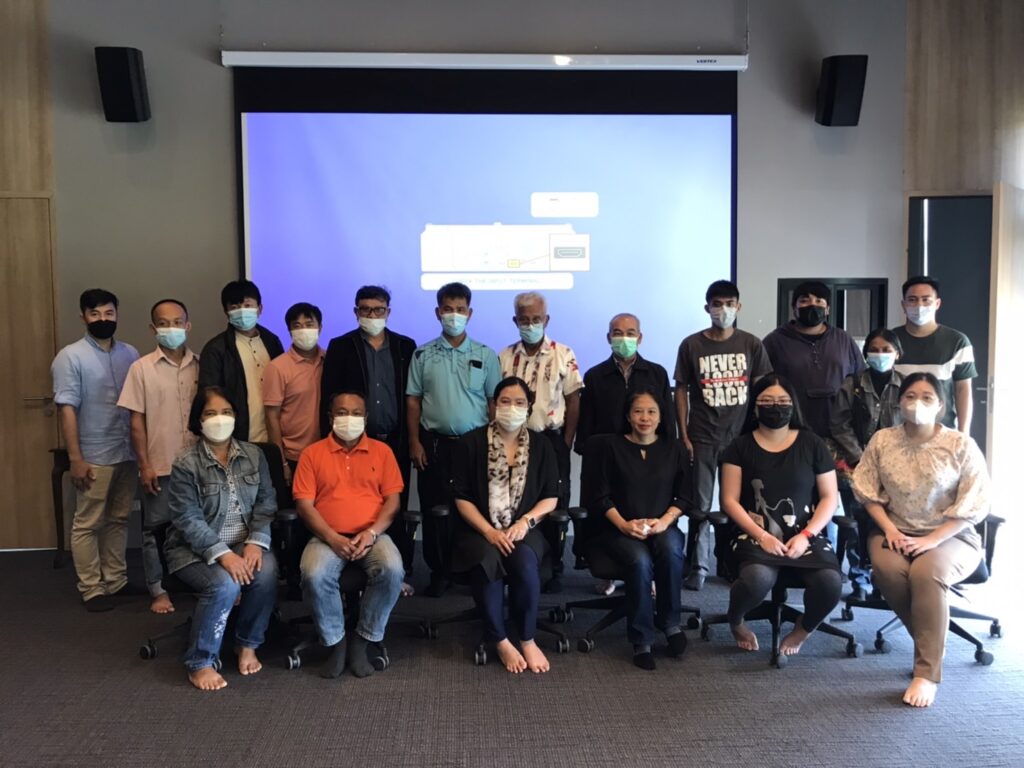
The impact of global warming continues to have an adverse effect on the agriculture sector bringing the quality and production volume down. This poses a serious hurdle for Thai rice farmers whose cultivation depends solely on precipitation. The fluctuation of temperatures and unpredictable rains are the biggest challenges, causing floods and draught, increasing pest and disease infestation, and eventually lowering productivity and leading to crop failure. Most of the farmers do not realise the cause of this change and the know-how to prepare and tackle this global warming. Realising its immediate and long-term impact on the farming community, Fairtrade NAPP and Fairtrade Germany have developed resilience strategies to increase the awareness of Fairtrade rice producers, strengthen their resilience ability at the farm level and help them reduce their carbon emission by changing their practices and developing methodologies to help the agri-community in carbon capturing.
The main objectives of the Climate Change Mitigation and Adaptation workshop for Thai Rice Producers are to (i) strengthen knowledge of producer organizations on climate-smart agriculture and new technologies (ii) enhance awareness of producer organizations on the climate change causes and its adverse effects (iii) enhance resilience ability of producer organizations and farmer members in tackling the climate change and adapting their farm practices and management to reduce the Carbon emission and enhance the Carbon sequestration. (iv) improve crop productivity in terms of quality and quantity.
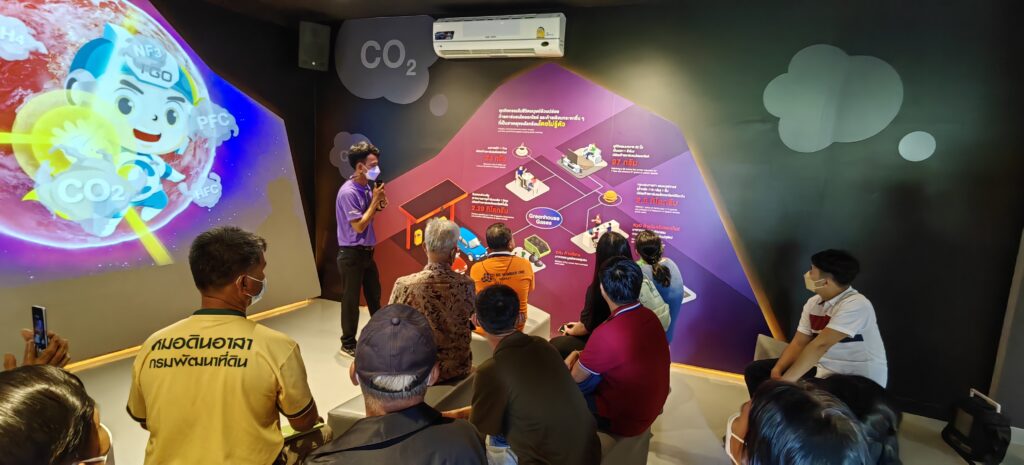
The project is planned in 2 phases:
Phase I: Knowledge enhancement on climate change impact on the agriculture sector, and adaptation and mitigation strategies.
11 rice producer organizations were invited to participate in the workshop. There were 20 delegates from 9 organizations who participated in the study visit. The workshop was conducted by 4 organizations:- Tha Manao Subdistrict Administrative Organization, Climate Action Academy (CAA), Thailand Greenhouse Gas Management Organization (TGO), Ministry of Natural Resources and Environment, Wangchan Valley project, PTT Public Company Ltd. And Kubota Farm, Siam Kubota Corporation Co., Ltd.
Phase II: Climate Action meeting on climate change adaptation.
At the end of the workshop, delegates exchanged their challenges and experiences on climate change impact and environmental projects for tackling climate change. SPO’s representatives shared their experience with their committee to discuss on developing a work plan and a climate adaptation project proposal.
Session I conducted by Tha Manao Subdistrict Administrative Organization (TMSAO)
The participants visited the climate learning centre and sustainable agriculture project site implemented by Tha Manao Subdistrict Administrative Organization. The delegates learned about the greenhouse gas emission caused by human activities and the climate impact resulting from the greenhouse gas.
To slow down climate change, alternative options were presented to SPO’s representatives such as alternative energy, reducing consumption, changing agriculture practices, planting trees, improving waste management, and supporting less carbon products, etc.
During the field visit, the delegates were exposed to the community biomass gas project that TMSAO had been working on with villages in the Tha Manao subdistrict and pig farms for 9 years. Currently, the community biomass gas can supply clean energy to 480 households and 16 pig farms all year round. From the data record, the biogas project can produce 1,500 cubic meters of gas per day from 11 gas stations.
The biogas project not only reduces greenhouse gas emissions but also produces community funds from the carbon credit income.
The income from carbon credit was used for maintenance of the biogas project and is invested in other projects such as a reusable energy project, solar cell, and water system for community organic vegetable farming, and emergency funds in response to future risks such as natural disasters.
Session II: Learning session by Climate Action Academy (CAA), Thailand Greenhouse Gas Management Organization (TGO), Ministry of Natural Resources and Environment and Wangchan Valley, PTT Public Company Ltd.
The workshop was organized at Wangchan Valley. The training session was delivered by Nareerat Thanakasem, Special Expert Acting Director of the Office of Potential Development and Knowledge Dissemination Thailand Greenhouse Gas Management Organization (Public Organization). Through the presentation, the learners were provided an introduction to the greenhouse, climate change impact, and adaptation to global warming followed by the National and Global policies.
The session was followed by a visit to the forest project site of Wangchan Valley, tree development monitoring, and carbon unit calculation.
Session III: Tour to Kubota Farm, Siam Kubota Corporation Co., Ltd.
During the farm tour at the Siam Kubota Farm, representatives had experience with smart agriculture technology for field crops and horticulture crops. The first visit was to the rice station to learn about solar farming and new technology for rice crops which can be applied by their organization. The smart technology includes seedling production, transplanting machinery, drone sprayer, nutrient test, wet and dry technique, and autonomous irrigation control.
The next station was vegetable production, which offered knowledge on machines related to seedling production, land preparation, transplanting, and irrigation system for vegetable production. There were several other stations showing high technology, for example, laser land leveling, smart greenhouse, EV tractor, underground water storage technique for cassava production, irrigation system for horticulture crops, chicken egg production machine, etc.
Session IV: Meeting and planning
A brainstorming meeting was conducted to discuss the climate change challenges faced by the producers, to share their experience in projects run by them, and to prepare their climate change action plan.
The major climate change challenges faced by the producers were:
- Changes in precipitation patterns causing rice crop failure and an increase in the investment cost for re-sowing, crop losses from rain during the harvesting period.
- Increase and fluctuations in temperature causing agricultural produce to mature out of season, pest infestations and low productivity.
- Some SPOs faced drought, and no rain in the rainy season, resulting in an outbreak of insect pests. The trees are fruiting in different patterns.
- Some areas face the pollution problem from the rice field burning practices of the non-member farmers.
- The members lack knowledge of global warming. They could not link their activities to the global warming effect.
Climate Project Action Plan
At the end of the training, the producers have proposed the implementation of the below project proposals under the climate change mitigation and adaptation scope.
- FTS Organic Amnat Charoen proposed the installation of a weather alert application program for farmers. It will serve 600 members on the weather forecast for rain and storms which will help the farmer to plan their fieldwork, such as rice sowing rice and harvesting, to avoid crop failure and crop damage.
- Amnatcharoen Organic Agricultural Community Enterprise Network saw that it is necessary to raise self-awareness and social responsibility among members through a training program and a tree plantation campaign. Free tree saplings will be distributed to the members for planting in the community areas. The forest committee will be appointed to monitor the growth of trees, evaluate results, and report.
- Ban Um-sang Rice Community Enterprise proposed the concept of promoting the rice cropping system by introducing the leguminous crop after harvesting to prevent fire and air pollution problems.
- Organic Agriculture Social Enterprise Innovators of Surin proposed to invest in the land leveling program to increase the effectiveness of rice production. Land leveling will allow the farmer to adopt the alternate wet and dry planting system which will reduce the methane gas emission while increasing the rice production.
- Sisaket Creative Farming Network Community Enterprise will introduce the alternate wet and dry irrigation technique for rice cultivation to reduce greenhouse gas emission.
- Thai Organic & Fairtrade Agriculture Group derived three ideas for the climate change project:-promoting the good waste management and recycling waste separation by offering training to farmers to increase their awareness of activities that contribute to global warming, educating farmers on climate change awareness, and adjusting the planting period to be in line with the changing weather, promoting community reforestation to store carbon or carbon capture.
The SPOs have agreed to develop the climate change project proposal and submit it to FT-NAPP by January 2023. A selection committee will be appointed by Fairtrade Germany and NAPP to select the five best proposals to receive the grant


